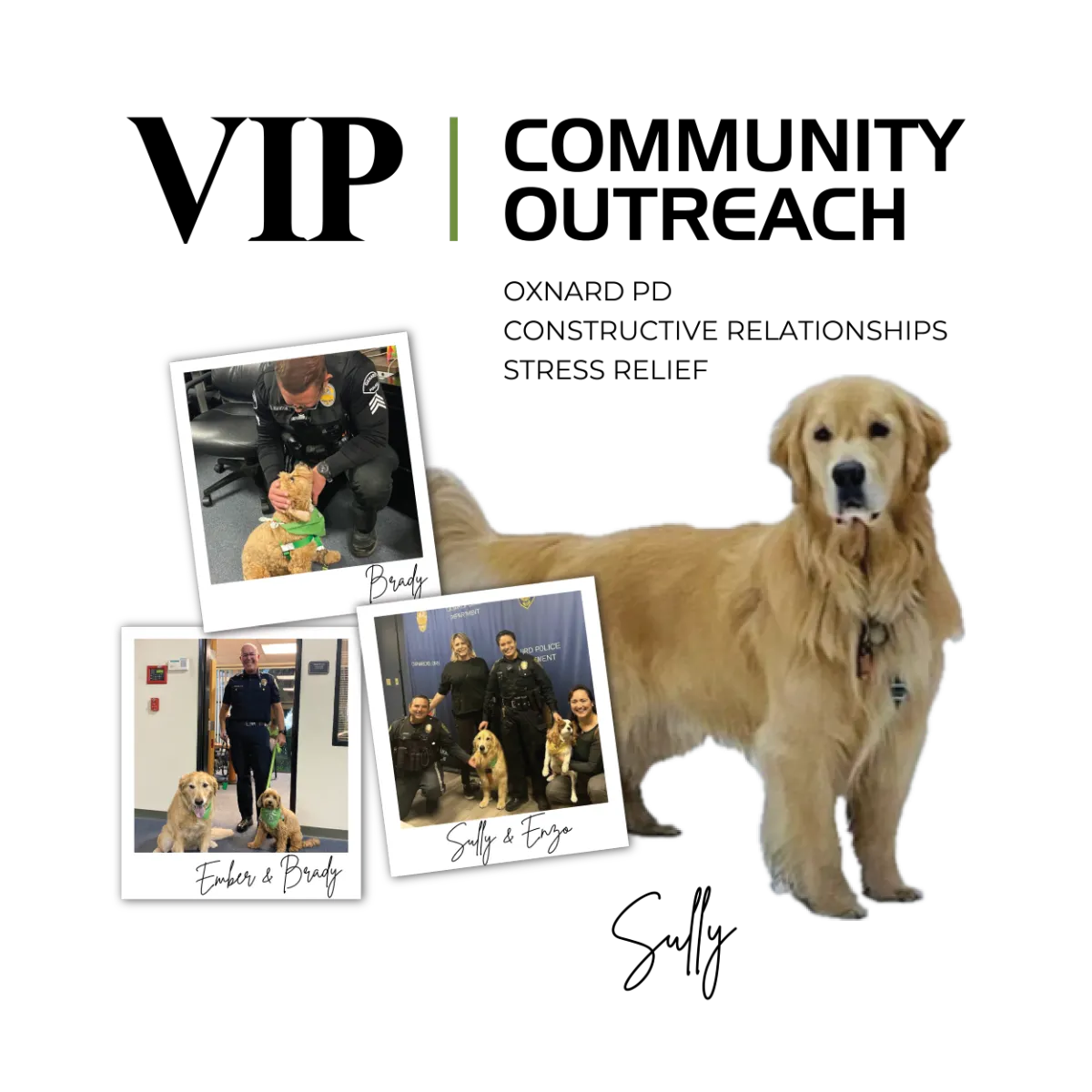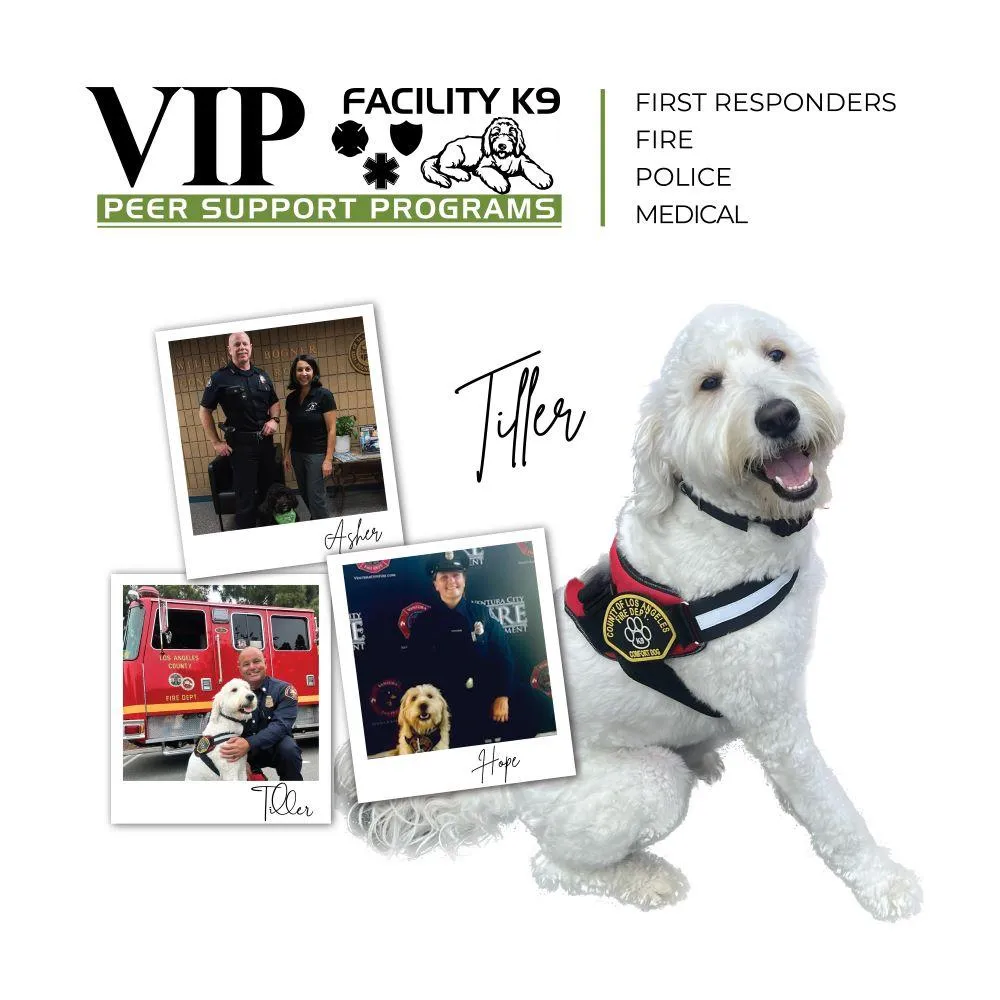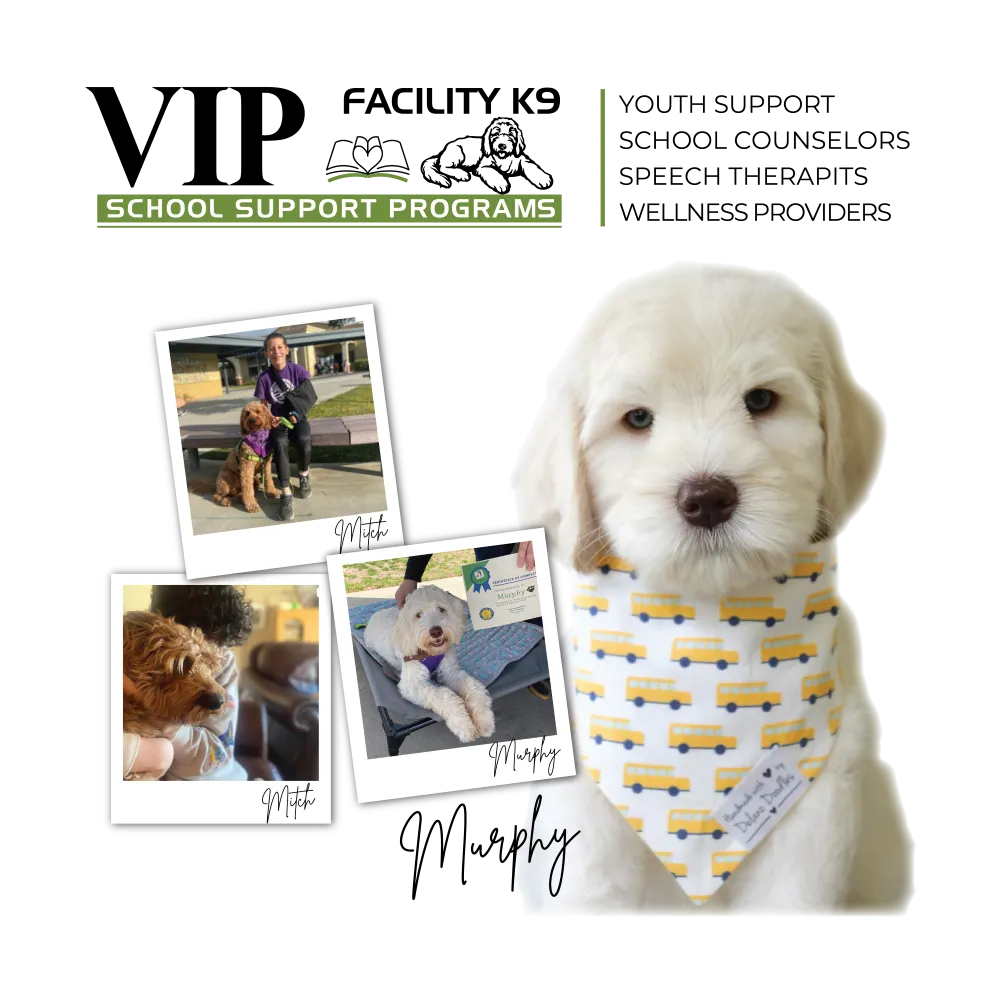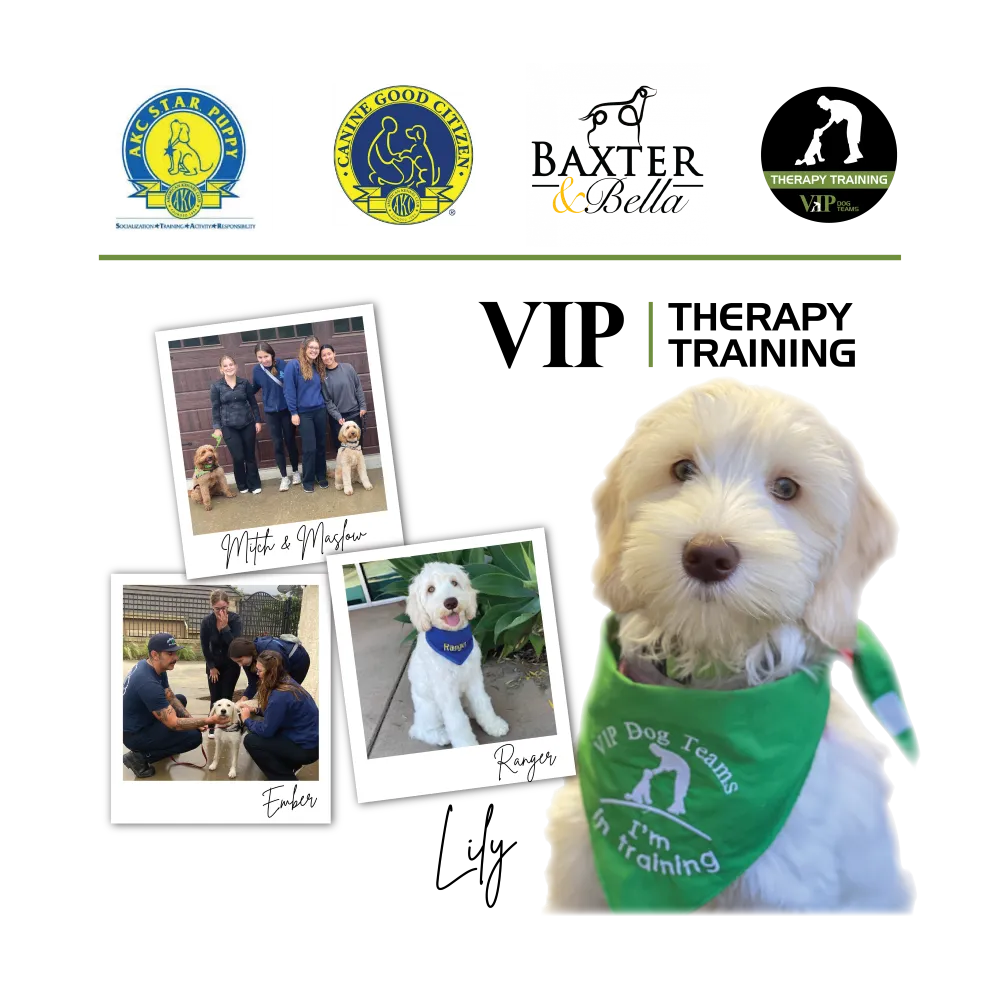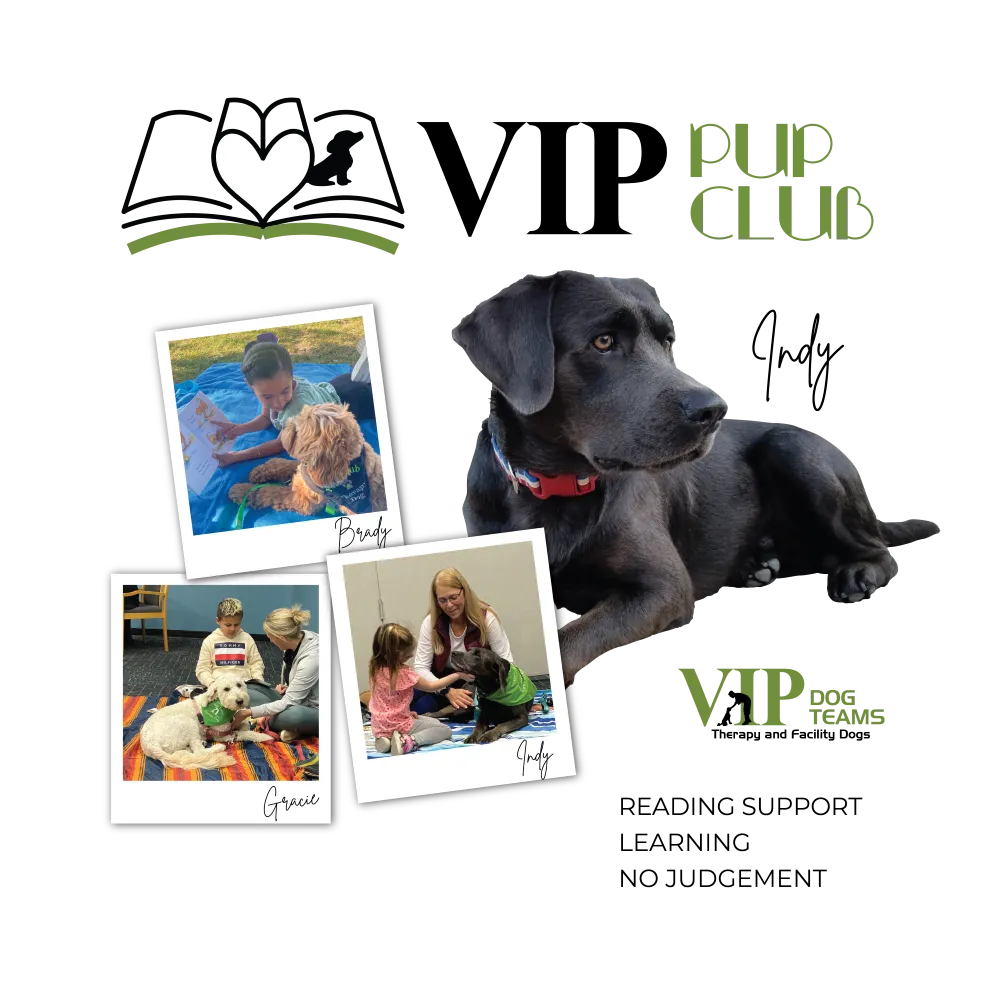VIP Dog Teams is a non-profit 501(c) (3). Our EIN#81-2995293.
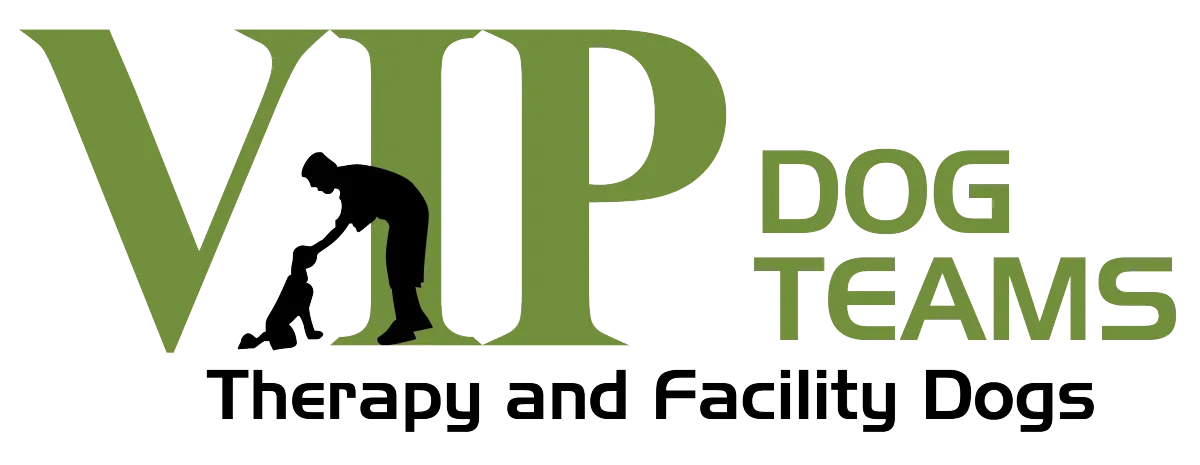
TRANSFORMING LIVES
HEALING HEARTS
IMPACTING OUR COMMUNITY
Facility - Therapy - Training
Has a dog ever changed your life? If you're anything like the pet lovers at VIP Dog Teams, you've experienced the profound impact of a dog's love. The innocent yet penetrating gaze of an animal, seeking & giving nothing but love and protection, has the power to transform lives. These remarkable creatures not only change lives; they save them.
VIP Dog Teams is dedicated to pairing First Responders, School Counselors, Speech Therapists, and other Wellness Providers with a VIP Dog naturally inclined to provide love and support to the community within their facility. Additionally, VIP Dog Teams Trains & Certifies Therapy Dogs for various community support programs. Can you and your dog become a VIP Dog Team? Can you impact the lives of children, first responders, wellness providers and/or our hero dogs? Follow our story on social media and click the button below to become part our mission.

TRANSFORMING LIVES
HEALING HEARTS
IMPACTING OUR COMMUNITY
Facility - Therapy - Training
Has a dog ever changed your life? If you're anything like the pet lovers at VIP Dog Teams, you've experienced the profound impact of a dog's love. The innocent yet penetrating gaze of an animal, seeking & giving nothing but love and protection, has the power to transform lives. These remarkable creatures not only change lives; they save them.
VIP Dog Teams is dedicated to pairing First Responders, School Counselors, Speech Therapists, and other Wellness Providers with a VIP Dog naturally inclined to provide love and support to the community within their facility. Additionally, VIP Dog Teams Trains & Certifies Therapy Dogs for various community support programs. Can you and your dog become a VIP Dog Team? Can you impact the lives of children, first responders, wellness providers and/or our hero dogs? Follow our story on social media and click the button below to become part our mission.
Press Play
Tackling Trauma with
Peer Support Dogs
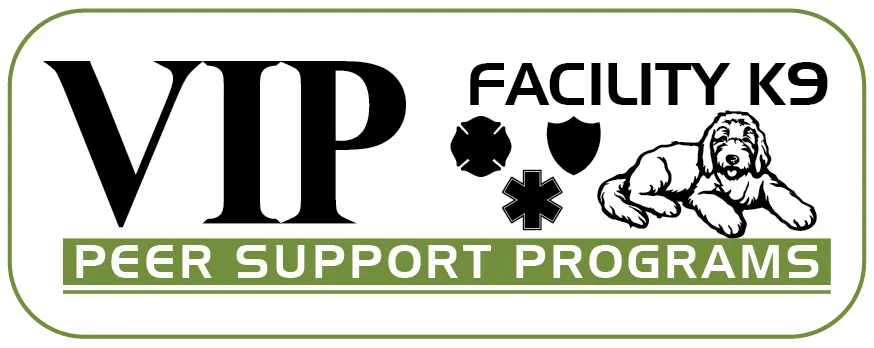
Empowering First Responders to Heal & Save Lives through Our Peer Support Dog Program
Meet Ben and Tiller. Ben is a Fire Captain of Fire Station 16 in Los Angeles, CA and Tiller is his Peer Support Facility Dog. This story is only one of many impactful moments Tiller's interactions with fellow fireman has created and an example of how heroes like Tiller help to heal heroes like Ben and other first responders.




Press Play
Tackling Trauma with
Peer Support Dogs

Empowering First Responders to Heal & Save Lives through Our Peer Support Dog Program
Meet Ben and Tiller. Ben is a Fire Captain of Fire Station 16 in Los Angeles, CA and Tiller is his Peer Support Facility Dog. This story is only one of many impactful moments Tiller's interactions with fellow fireman has created and an example of how heroes like Tiller help to heal heroes like ben and other first responders.




What is a "VIP Dog Team"
A VIP Dog Team is a Handler and their Trained dog committing their passions to community actions through our VIP Programs.
Community Outreach
Pup Club
Facility Dogs

What is a "VIP Dog Team"
A VIP Dog Team is a Handler and their Trained dog committing their passions to community actions through our VIP Programs.
Community Outreach
Pup Club
Facility Dogs

BECOME A VIP DOG TEAM!
Together, you and your pet can bring joy and comfort to those who need it most!

VIP Dog Teams trains therapy dogs to effectively interact with people and their surroundings under the guidance of their owners. Our therapy dogs are utilized in animal-assisted interventions (AAI), which are structured and goal-oriented approaches that integrate animals into various health, educational, and human service settings to promote therapeutic benefits and enhance overall well-being. These animals work as part of volunteer therapy animal teams under the supervision of professionals..
BECOME A VIP VOLUNTEER!
Together, you and your pet can bring joy and comfort to those who need it most!

VIP Dog Teams mission is to train therapy dogs to react and respond to people and their environment, under the guidance and direction of their owners our Therapy dogs can be used as part of animal assisted intervention (AAI) Animal assisted interventions are goal-oriented and structured interventions that intentionally incorporate animals in health, education, and human service for the purpose of therapeutic gains and improved health and wellness. The animal may be part of a volunteer therapy animal team working under the direction of a professional or an animal that belongs to the professional.
To Become a Certified Team, You and Your Dog Must be Committed to Completing the Training Process.
To Become a Certified Team, You and Your Dog Must be Committed to Completing the Training Process.
What is a
Therapy Dog?
A Therapy Animal is a pet that is trained with its owner, as a team, to provide comfort and stress relief to others in a variety of situations.
Can Your Dog Become a Therapy Dog?
Click the button below to learn more about Therapy Dogs, Facility Peer Support Dogs, Service Dogs, & Emotional Support Dogs.
Educational Guides

A Guide for Dog Jobs
What is the difference between a Service Dog and a Therapy Dog?
What kind of training do they require. Explore the differences between these dog jobs and link to resources for training and categories of each job type.
7 Simple Steps to
Potty Train Your Puppy
Learn how to potty train your puppy with our guide. The guide is free and we have packed it with information to help you and your puppy succeed! Download this step-by-step guide today!
Educational Guides

A Guide for Dog Jobs
What is the difference between a Service Dog and a Therapy Dog?
What kind of training do they require. Explore the differences between these dog jobs and link to resources for training and categories of each job type.
7 Simple Steps to
Potty Train Your Puppy
Learn how to potty train your puppy with our guide. The guide is free and we have packed it with information to help you and your puppy succeed! Download this step-by-step guide today!
What is a
Therapy Dog?
A Therapy Animal is a pet that is trained with its owner, as a team, to provide comfort and stress relief to others in a variety of situations.
Can Your Dog
Become a Therapy Dog?
Click the button below to learn more about Therapy Dogs, Facility Peer Support Dogs, Service Dogs, & Emotional Support Dogs.

Passionate Stories
& Cute Puppies
Join Our VIP Sponsor Program Today!
Ready to infuse heart into your marketing strategy? Click the button below to explore the sponsorship options and be a part of the stories that inspire, uplift, and create lasting connections.
Your Sponsorship will Actively Support our Training Facility Goal!


Passionate Stories
& Cute Puppies
Join Our
VIP Sponsor Program Today!
Ready to infuse heart into your marketing strategy? Click the button below to explore the sponsorship options and be a part of the stories that inspire, uplift, and create lasting connections.
Your Sponsorship will Actively Support our Training Facility Goal!

Dog Training
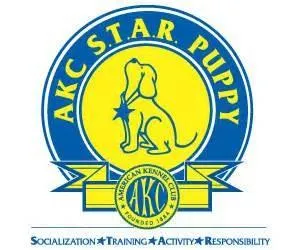

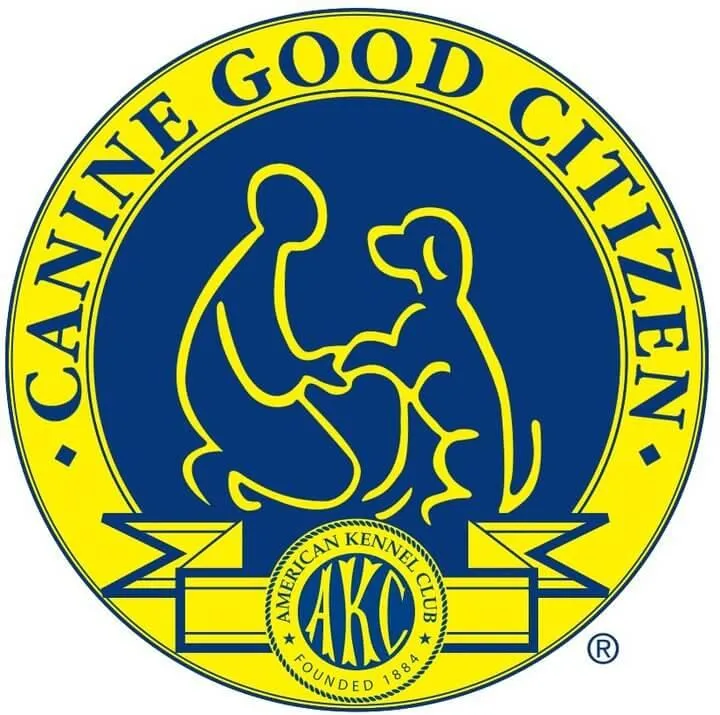
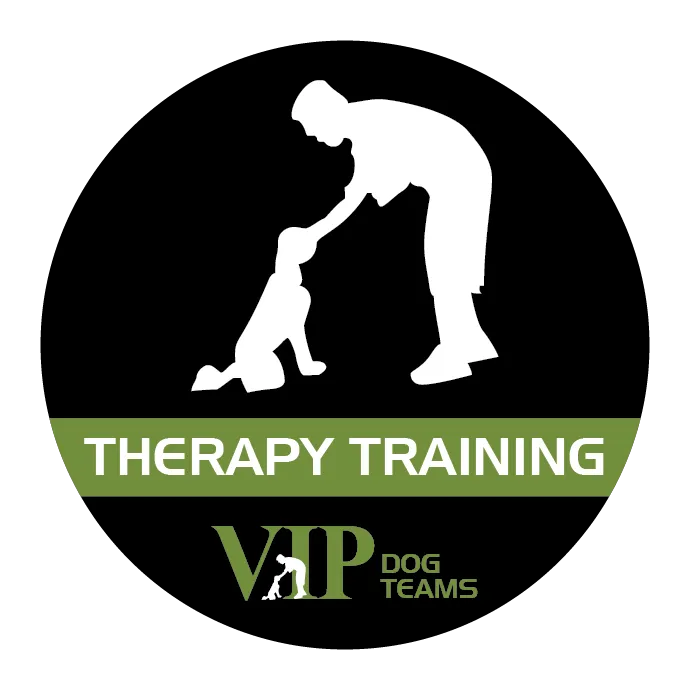
Embark on a heartwarming journey with your furry friend by exploring our training pages dedicated to fostering the perfect therapy dog bond! Whether you're dreaming of becoming a therapy dog team or nurturing your pup's innate therapy dog temperament, our training resources are designed just for you. From AKC S.T.A.R Puppy Classes to Canine Good Citizen (CGC) certification, our pages guide you through each paw-sitive step of the way.
Dog Training




Embark on a heartwarming journey with your furry friend by exploring our training pages dedicated to fostering the perfect therapy dog bond! Whether you're dreaming of becoming a therapy dog team or nurturing your pup's innate therapy dog temperament, our training resources are designed just for you. From AKC S.T.A.R Puppy Classes to Canine Good Citizen (CGC) certification, our pages guide you through each paw-sitive step of the way.
